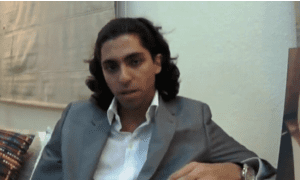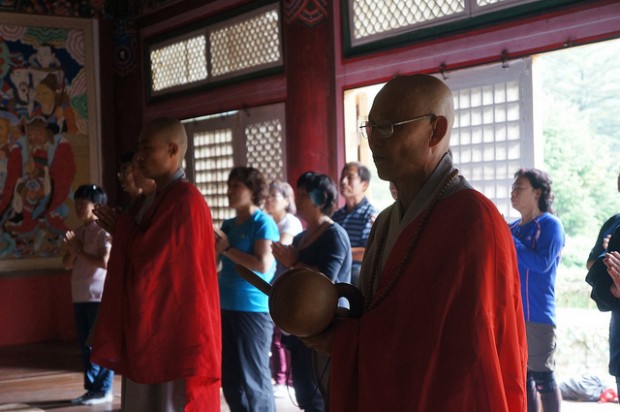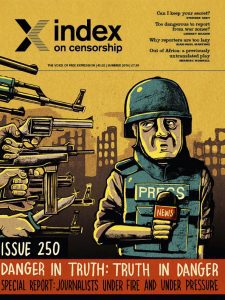16 Jan 2020 | News
[vc_row][vc_column][vc_single_image image=”111830″ img_size=”full” add_caption=”yes”][vc_column_text]“When I talk about what’s happening in Saudi Arabia, I liken it to a really abusive relationship. First they [the state] gaslight you, they try to convince you that you’re not being abused, that this actually is for your own protection, for your best interests. Then when that doesn’t work out, then they beat you up and… when you escape from them they hunt you down and kill you,” said Safa Al Ahmad, award-winning Saudi Arabian journalist, at the launch of the winter 2019 issue of Index on Censorship magazine.
The issue is on the techniques that macho leaders around the world are using to stifle dissent, democracy and discussion, and how people are fighting back. From Brazilian President Jair Bolsonaro ranting against and disparaging media to Hungary’s Prime Minister Viktor Orbán using a rhetoric of family values to deny the LGBT community and others the same rights as “traditional” nuclear families, the magazine takes a global view.
Al Ahmad was joined for a panel discussion, held at Google HQ in London, with bestselling Chinese novelist Xiaolu Guo, Hungarian activist Dóra Papp and satirist and author Rob Sears. The panel was chaired by Rachael Jolley, editor-in-chief of Index on Censorship magazine.
Each panellist was invited to discuss a world leader. Al Ahmad opened with her striking analogy of abusive relationships to discuss Crown Prince of Saudi Arabia Mohammed bin Salman. She highlighted that her analogy was not an exaggeration, citing women’s rights campaigners who have ended up dead or in prison. “I think the feminist movement in Saudi must have been the most frightening for the state,” she said, explaining the lengths the state has gone to in order to silence women.
Al Ahmad also remarked on the absolutist relationship the Saudi state has with the media: “We [Saudi Arabia] have inventing the rulebook on shutting down dissent of any sort, so the state owns all the media. There is no independent media whatsoever to shut buyout – they already own it.”
Papp observed that Orbán has not locked up or killed dissenters “yet”, but that he is at the stage of attempting to create a sense of discord amongst Hungarians, thereby preventing unified protest. She said: “What this kind of leadership from Orbán is really pro in is… making the nation believe that they have to stay divided in order to protect their own identities and their own values.”
Family values is part of the rhetoric of Orbán’s government, which “concludes in a list of disadvantages for LGBT groups, for single mothers, for anyone who is thinking outside the box”. Papp, a successful campaigner, said that we need to be really cautious and not let this narrative divide people.
Guo, discussing China’s president Xi Jinping, spoke about the importance of a dominating personality in a “strongman” leader in order to control the narrative of a country. She said of Xi: “He has an extremely tough way of dealing with internal turmoil but also a very interesting and mysterious way of dealing with international conflict.” She also commented that tension between Xi and US President Donald Trump seems to be bringing about a cold war that “we thought had disappeared 20 years ago”.
A discussion about macho men would not be complete without a dissection of the presidency of Trump, which Sears did by observing how Trump stifles free expression, not by killing journalists, but by setting the media agenda. Sears highlighted two of Trump’s oratory traits: “One is that he is basically impossible to ignore and the other is that he is basically impossible to engage with.”
He explains that Trump’s repeated use of outrageous, implausible (think “build the wall” and “lock her up”) but clear images forces the media to report on them. He said: “You [journalists] can’t help but respond to them and make them the focus of attention, meaning that it’s tricky for other topics to make it into the highest levels of conversation.”
“I’m sure every politician finds the right language for that purpose. UK Prime Minister Boris Johnson cleary does and some of the other leaders we’ve talked about do as well… I don’t know if they are deliberate methods… but I do think that it’s been extremely effective against a decent, fruitful public debate in the states and worldwide.”
Click here to read more about the current magazine
Listen to Rachael Jolley and deputy editor of the magazine, Jemimah Steinfeld, discuss the current issue on Resonance radio here [/vc_column_text][/vc_column][/vc_row][vc_row][vc_column][/vc_column][/vc_row]
23 Jun 2017 | Bahrain, Bahrain Statements, Campaigns -- Featured, Egypt, Qatar, Saudi Arabia, Statements, United Arab Emirates
[vc_row][vc_column][vc_column_text]The call by four Arab states — UAE, Bahrain, Saudi Arabia and Egypt — for Qatar to close news network Al Jazeera is clearly motivated by a desire to control the media in the region and silence reporting of stories that these governments would rather not see exposed.
Al Jazeera has brought the world news from the Arab Spring and many of the recent important moments from the region. Including the closure of Al Jazeera in a list of demands that Qatar “should” comply with to end a diplomatic crisis is about reducing media freedom in a region where it is already threatened.
“From its treatment of blogger Raif Badawi to its tightly controlled media environment, the Saudi authorities must not be able to dictate access to information for the public in other countries. Al Jazeera and press freedom must not be used as a bargaining chip,” Rachael Jolley, editor of Index on Censorship said.
None of the nations involved have a free independent media. Bahrain regularly targets critics, journalists and the one remaining opposition newspaper in the country, Al Wasat. Saudi Arabia sentenced blogger Raif Badawi to 10 years in jail and 1,000 lashes for his “criminal” writings. Egypt has regularly tried journalists on accusations of terrorism. The UAE, too, curtails discussion of its domestic policies. UAE Federal Law No. 15 of 1980 for Printed Matter and Publications regulates all aspects of the media and is considered one of the most restrictive press laws in the Arab world, according to Freedom House. Reporters Without Borders ranks them all below 118, with Saudi Arabia, Egypt and Bahrain all below 160 out of the 180 nations it covers.[/vc_column_text][/vc_column][/vc_row][vc_row][vc_column][vc_basic_grid post_type=”post” max_items=”12″ style=”load-more” items_per_page=”4″ element_width=”6″ grid_id=”vc_gid:1498231474147-ef0d779a-68d3-0″ taxonomies=”9044″][/vc_column][/vc_row]
2 Jun 2017 | Events

Saudi blogger Raif Badawi has been imprisoned for five years and flogged for exercising his fundamental right to free expression.
Join Index and others to mark the fifth anniversary of the arrest of Raif Badawi, a Saudi Arabian blogger and writer.
Badawi was arrested and detained in June 2012. In May 2014, Badawi was sentenced to ten years in prison, 1000 lashes, a huge fine, and two additional penalties – a ten-year travel ban and a ten-year ban from participating in visual, electronic and written media, both to be applied following his release.
TAKE ACTION
Join a vigil at the Saudi Embassy
9-10am, Friday 16 June
To mark the five-year anniversary of Raif Badawi’s arrest and the birthday of his lawyer Waleed Abu Al-Khair, who himself is currently serving a 15-year prison sentence, join a vigil at the Saudi Embassy in London to continue to call for their immediate release.
Representatives of English Pen, Bread and Roses TV, Council of Ex-Muslims of Britain, Index on Censorship, One Law For All, the Peter Tatchell Foundation and Reporters Without Borders will be present.
Participants are asked to meet at the Curzon Street entrance to the Embassy. (note: the postal address of the Embassy is 30-32 Charles Street, Mayfair, London).
Spread the word
Please keep sharing details of Raif Badawi’s case and calls for his release on social media. Follow @Raif_Badawi on Twitter and tweet your support with the hashtag #FreeRaif
14 Apr 2016 | Asia and Pacific, Burma, China, Eritrea, Europe and Central Asia, Iran, Middle East and North Africa, mobile, News, North Korea, Saudi Arabia, Sudan, Turkmenistan, Uzbekistan
[vc_row][vc_column][vc_column_text]

Pohyon Temple in the Myohyang mountains, once a national center for Korean Buddhism. Credit: Uri Tours / Flickr
After the United States Commission on International Religious Freedom, an independent organisation created by the US Congress to evaluate religious freedom conditions around the world, released its 2015 report, it became clear that an insufficient amount of progress had been made since Index on Censorship last reported on the issue.
Here’s a roundup of some the most appalling religious freedom violations from across the globe.
Burma
Bigotry and intolerance continue to scorch the lives of religious and ethnic minorities in Burma, particularly Rohingya Muslims. The Burmese government demonstrated little effort toward intervening or properly investigating claims of abuse, including those carried out by religious figures in the Buddhist community. As internet availability spread throughout the country, social media played a role in promoting a platform of hate and proposed violence against minority populations. Rohingya Muslims in the country face a unique level of discrimination and persecution. The government denies them citizenship and the right to identify as Rohingya. Additionally, four discriminatory race and religion bills could further the prejudices affecting religious minorities.
North Korea
North Korea is a nation where genuine freedom of religion or belief is non-existent; it remains one of the most oppressive regimes and worst violators of human rights. Punishment comes to those who pose difficult questions while the government maintains its control through a constant threat of imprisonment, torture and even death for those who break the law regarding religion. Estimates suggest up to 200,000 North Koreans are currently suffering in labor camps, tens of thousands of whom are there for practicing heir faith. In February 2014, the Commission of Inquiry on Human Rights in the Democratic People’s Republic of Korea released its report documenting the systematic, severe violations of human rights in the country. It found “an almost complete denial of the right to freedom of thought, conscience”.
Saudi Arabia
Officially an Islamic state with eight to ten million expatriate workers of different faiths, Saudi Arabia continues to restrict most forms of public religious expression inconsistent with its interpretation of Sunni Islam. The government continues to use criminal charges of blasphemy to suppress any dialogue between dissenting viewpoints, with a new law helping drive home the goal of silence. The Penal Law for Crimes of Terrorism and its Financing criminalises virtually all forms of peaceful dissent and free expression, including criticising the government’s view of Islam. Lastly, authorities continue to discriminate grossly against dissident clerics and members of the Shia community.
Sudan
The Sudanese government continues to engage in massive violations of freedom of religion, due to president Omar al-Bashir’s policies of Islamisation and restrictive interpretation of sharia law. Despite 97% of the population being Muslim, there is a wide range of other religions practiced. The country’s turmoil from religious persecution rests on the 1991 Criminal Code, the 1991 Personal Status Law of Muslims, and state-level “public order” laws, which have restricted freedom for all Sudanese. The laws – which contradict the country’s constitutional and international commitments to human rights and freedom of religion – allow death sentences for apostasy, stoning for adultery, cross-amputations for theft, prison sentences for blasphemy and floggings for undefined “offences of honor, reputation and public morality”. Since 2011, more than 170 people have been arrested and charged with apostasy.
Article continues below
[/vc_column_text][/vc_column][/vc_row][vc_row][vc_column][vc_custom_heading text=”Join the Index mailing list and get an exclusive gift” font_container=”tag:p|font_size:28|text_align:left” use_theme_fonts=”yes”][vc_separator color=”black”][/vc_column][/vc_row][vc_row][vc_column width=”1/2″][vc_column_text]

Index on Censorship’s summer magazine 2016
We’ll send you our weekly emails and periodic updates on our events. We won’t share your personal information with anyone outside Index.
You’ll also get access to an exclusive collection of articles from our landmark 250th issue of Index on Censorship magazine exploring journalists under fire and under pressure. Your downloadable PDF will include reports from Lindsey Hilsum, Laura Silvia Battaglia and Hazza Al-Adnan.[/vc_column_text][/vc_column][vc_column width=”1/2″][gravityform id=”20″ title=”false” description=”false” ajax=”false”][/vc_column][/vc_row][vc_row][vc_column][vc_separator color=”black”][/vc_column][/vc_row][vc_row][vc_column][vc_column_text]Uzbekistan
In Uzbekistan, the government imprisons individuals for not conforming to officially prescribed practices or whom it claims are extremist, including as many as 12,000 Muslims. A highly restrictive religion law is imposed, the 1998 Law on Freedom of Consciences and Religious Organisations, which severely limits the rights of all religious groups and facilitates Uzbek government control over religious activity. Many who don’t fit into the framework of officially approved practices are regularly repressed. Additionally, the government has continued a campaign against independent Muslims, targeting those linked to the May 2005 protests in Andijan; 231 are still imprisoned in connection to the events, and ten have died. All the while, Uzbekistan has pressured countries to return Uzbek refugees who fled during the Andijan tragedy.
Turkmenistan
In an environment of nearly inescapable government information control, severe religion freedom breaches persist in Turkmenistan. Continuing police raids and harassment of registered and unregistered religious groups matched with laws and policies that violate international human rights norms has the nation as one of the year’s biggest offenders. With an estimated total population of 5.1 million, the US government projects that the country is 85% Sunni Muslim, 9% Russian Orthodox, and a 2% total that includes Jehovah’s Witnesses, Jews, and evangelical Christians. Despite Turkmenistan’s constitutionally guaranteed religious freedom and separation of religion from the state, the 2003 religion law negates these provisions while setting intrusive registration criteria for individuals. It also requires that the government is informed of all foreign financial support, forbids worship in private homes and places discriminatory restrictions on religious education.
China
While the Chinese constitution guarantees freedom of religion, this idea really only applies to “normal religions”, better known as the five state-sanctioned “patriotic religious associations” associated with Buddhism, Taoism, Islam, Catholicism and Protestantism. Even still, the government monitors religious activities unfairly, and there has been an increased religious persecution of Uighur Muslims in the name of fighting terrorism. All around repression in China worsened in 2014, including the governmental push for controlling Tibet, Xinjiang, and even Hong Kong, as well as controls on the internet, social media, human rights defenders, activists and journalists.
Eritrea
Ongoing religious freedom abuses have continued in Eritrea, including torture or ill-treatment of religious prisoners, random arrests without charges and banning’s on public religious activities. The situation is especially serious for Evangelical and Pentecostal Christians and Jehovah’s Witnesses, and the government suppresses Muslim religious activities and those opposed to the government-appointed head of the community. In 2002, the government increased its control over religion by imposing a registration requirement on all religious groups other than the Coptic Orthodox Church of Eritrea, Sunni Islam, the Roman Catholic Church and the Evangelical Church of Eritrea. The requirements mandated that the non-preferred religious communities provide detailed information about their finances, membership, activities, and benefit to the country. Additionally, released religious prisoners have reported to USCIRF that they were confined in crowded conditions, and subjected to extreme temperature fluctuations. The government continued to arrest and detain followers of unregistered religious communities. Recent estimates suggest 1,200 to 3,000 people are imprisoned on religious grounds in Eritrea, the majority of whom are Evangelical or Pentecostal Christians.
Iran
Poor religious freedom in Iran continued to worsen in 2014, particularly for minority groups like Bahá’ís, Christian converts, and Sunni Muslims. The government is still engaging in systematic violations, including prolonged detention, torture, and executions based on the religion of the accused. Despite Christians, Jews, and Zoroastrians being recognised as protected minorities, the government has consistently discriminated against its citizens on the basis of religion. Killings, arrests, and physical abuse of detainees have increased in recent years, including for religious minorities and Muslims who are perceived as threatening the government’s legitimacy.[/vc_column_text][/vc_column][/vc_row][vc_row][vc_column][vc_basic_grid post_type=”post” max_items=”12″ style=”load-more” items_per_page=”4″ element_width=”6″ grid_id=”vc_gid:1493906845781-a7b9ac80-f77d-2″ taxonomies=”1742″][/vc_column][/vc_row]



